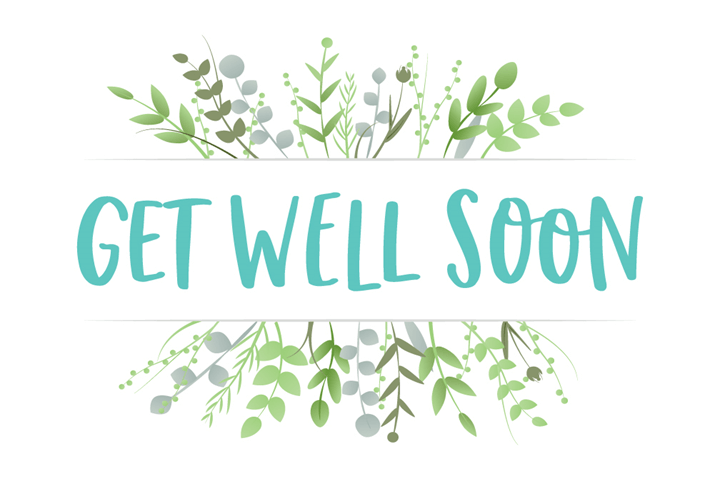When a friend or loved one is feeling unwell, offering words of comfort and wishing them a speedy recovery is a universal gesture of care. In Arabic-speaking cultures, these expressions carry deep warmth and sincerity. This article will guide you on how to say get well soon in arabic effectively, focusing on common phrases like “get well soon arabic” and other heartfelt expressions of well-wishing.
The Most Common Ways to Say “Get Well Soon in Arabic”
The primary phrase you’ll hear and use for “get well soon in arabic” is deeply rooted in Islamic tradition and is universally understood across the Arab world.
| Arabic Phrase (Script & Transliteration) | Addressed To | Meaning & Context |
|---|---|---|
| شَفَاكَ اللَّهُ (shafāka Allāh) | Male (Singular) | “May Allah (God) grant you healing.” (Most common and widely accepted phrase.) |
| شَفَاكِ اللَّهُ (shafāki Allāh) | Female (Singular) | “May Allah (God) grant you healing.” |
| شَفَاكُمُ اللَّهُ (shafākumu Allāh) | Group (Male, Female, or Mixed) | “May Allah (God) grant you all healing.” |
For Third-Person Reference (Talking About the Sick Person):
- May Allah heal him (male). – شَفَاهُ اللَّهُ (shafāhu Allāh)
- May Allah heal her (female). – شَفَاهَا اللَّهُ (shafāhā Allāh)
- May Allah heal them (group). – شَفَاهُمُ اللَّهُ (shafāhumu Allāh)
Other Heartfelt Ways to Say “Get Well Soon Arabic”
Beyond the primary phrase, there are other expressions that convey wishes for recovery and well-being. These can often be used alongside or as alternatives to the primary phrases:
- (lā baʾsa, ṭahūrūn in shāʾa Allāh) – لَا بَأْسَ، طَهُورٌ إِنْ شَاءَ اللَّهُ
- Meaning: “No harm (it’s nothing bad), a purification/atonement, God willing.”
- Usage: This phrase is particularly comforting in a religious context, suggesting that the illness is a means of purifying sins.
- (ʾatamannā laka/laki ash-shifāʾa al-ʿājila) – أَتَمَنَّى لَكَ/لَكِ الشِّفَاءَ العَاجِلَ
- Meaning: “I wish you a speedy recovery.”
- Usage: A more direct and general wish for quick healing, suitable for both formal and informal contexts.
- (ṣiḥḥatun wa ʿāfiyah) – صِحَّةٌ وعَافِيَةٌ
- Meaning: “Health and well-being.”
- Usage: A general blessing for good health. Can be used as a standalone wish, or as part of a longer sentence, often when someone is about to eat or as a general wish for good health.
- (ʿāfāka Allāh) – عَافَاكَ اللَّهُ
- Meaning: “May Allah (God) grant you good health.”
- Usage: Similar to shafāka Allāh, but with a focus on general well-being and health. (Feminine: عَافَاكِ اللَّهُ / Plural: عَافَاكُمُ اللَّهُ).
How to Respond When Someone Wishes You Well
It’s polite to respond with gratitude when someone offers well wishes. These are the most common replies:
- “Thank you very much.” – شُكْرًا جَزِيلًا (shukran jazīlan)
- “May Allah bless you.” (To a male/female/group). – بَارَكَ اللَّهُ فِيكَ/فِيكِ/فِيكُمْ (bāraka Allāhu fīka/fīki/fīkum)
- “And to you too” (a common short response to blessings). – وَإِيَّاكَ/وَإِيَّاكِ/وَإِيَّاكُمْ (wa ʾiyyāka/wa ʾiyyāki/wa ʾiyyākum)
Conclusion
Learning how to say get well soon in arabic is a valuable step in connecting with Arabic speakers on a personal level. Phrases like “shafāka Allāh” and other expressions for “get well soon arabic” are not just words, but convey profound well-wishes rooted in compassion and faith. By using these phrases appropriately, you’ll demonstrate not only your language skills but also your understanding and respect for Arab cultural values.
Ready to learn more essential Arabic phrases for real-life conversations and cultural understanding? Download the Kaleela Arabic language learning app today!



